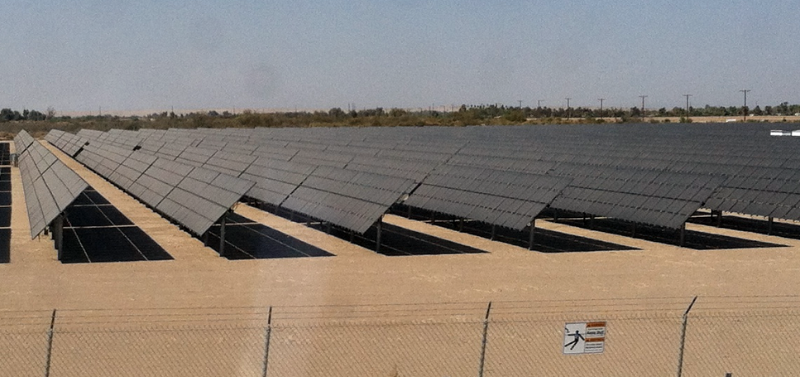Introduction
We live in a world that is facing unprecedented challenges of climate change, resource depletion, and energy insecurity. These challenges threaten our environment, our society, and our economy. How can we overcome them and create a better future for ourselves and generations to come?
The answer lies in sustainable energy: energy that is produced and used in ways that do not harm the environment or deplete natural resources. Sustainable energy sources, such as solar, wind, hydro, biomass, and geothermal, offer many benefits for us and our planet.
Pakistan, a nation of more than 220 million people, stands at a crucial juncture in its energy journey. With a growing population and an expanding economy, the country’s energy needs are escalating. However, the pursuit of energy sustainability is no longer a choice but an imperative. Pakistan’s energy landscape must evolve to safeguard the environment, ensure energy security, and pave the way for a prosperous and sustainable future.
Diverse Energy Sources
Pakistan’s energy mix has long been dominated by fossil fuels, primarily natural gas and oil. While these sources have played a crucial role in meeting energy demands, they are finite and contribute to environmental degradation. To achieve sustainability, Pakistan must diversify its energy sources. The country’s vast potential for renewable energy, including solar, wind, and hydropower, is a valuable asset that can reduce dependence on fossil fuels.
 Source: Flickr
Source: FlickrWind Energy Potential:
Pakistan’s coastal regions, especially in Sindh and Baluchistan, offer excellent opportunities for wind energy production. Wind farms and projects are rapidly growing in these areas, contributing to a more diversified and sustainable energy mix. These ventures also bring economic benefits by creating jobs and reducing the country’s carbon footprint.
Solar Energy:
Solar energy, in particular, holds great promise in Pakistan. With its abundant sunshine throughout the year, harnessing solar power can significantly reduce carbon emissions and reliance on fossil fuels. Initiatives like the Quaid-e-Azam Solar Park in Bahawalpur exemplify the nation’s commitment to developing solar energy infrastructure. Solar energy adoption in Pakistan is hindered by factors such as the high initial cost, limited awareness, government subsidies for conventional energy sources, unreliable grids, infrastructure and financing challenges, political and economic instability, lack of a skilled workforce, and import tariffs on solar equipment.
Hydropower and Geothermal Energy:
With a terrain that ranges from mountains to plains, Pakistan is well-suited for hydropower generation. The Indus River system provides significant hydroelectric potential, and several dams and hydropower projects are already in operation. Further investments in this sector can contribute to a more sustainable energy mix, reduce greenhouse gas emissions, and provide energy security. Additionally, geothermal energy, which harnesses heat from within the Earth, remains an underutilized resource with significant potential.
Biomass and Bioenergy:
Biomass and bioenergy in Pakistan represent a significant opportunity to address the nation’s energy needs and environmental concerns. With abundant agricultural residues, forestry waste, and animal dung, Pakistan possesses vast biomass resources that can be effectively converted into clean energy through processes like combustion, gasification, and anaerobic digestion. Bioenergy applications include rural electrification, clean cooking solutions, industrial and commercial heat, and biogas production.
Energy Efficiency Initiatives
Enhancing energy efficiency is a crucial component of the sustainability equation. Pakistan can make significant improvements by promoting projects in energy-efficient practices in industries, transportation, and homes. This includes the adoption of energy-efficient appliances, better insulation in buildings, and the optimization of industrial processes to minimize energy consumption. Such measures not only reduce energy waste but also result in cost savings.
Challenges and Opportunities
Despite its renewable energy potential, Pakistan faces several challenges in its quest for sustainability. These include financial constraints, an inadequate grid infrastructure, and political instability. Addressing these issues will require a concerted effort from the government, private sector, and international partners.
Climate Change and Environment:
Climate change and environmental concerns related to waste and trash include increased greenhouse gas emissions, air and water pollution, and damage to ecosystems. China has implemented advanced waste management technologies in Pakistan, such as waste-to-energy plants and improved recycling systems. These technologies help convert trash into usable energy and reduce the environmental impact of waste. The China-Pakistan Economic Corridor (CPEC) project, for example, presents an opportunity to invest in sustainable infrastructure and energy projects. With the right strategies and investments, Pakistan can leverage CPEC to enhance its energy sustainability, create jobs, and stimulate economic growth.
Technological Advancements:
The transportation sector is a substantial contributor to Pakistan’s energy consumption and environmental pollution. Encouraging the use of electric vehicles (EVs) can mitigate emissions. Moreover, investing in public transportation systems, such as modern bus rapid transit (BRT) systems in cities like Lahore and Karachi can help reduce the number of private vehicles on the road, furthering sustainability.
Government Initiatives:
The Government of Pakistan has recognized the urgency of addressing the nation’s energy challenges. Initiatives like the “Clean and Green Pakistan” program emphasize the importance of environmental sustainability. Additionally, policies and incentives for renewable energy adoption, including net metering regulations, are aimed at promoting sustainable energy practices.
Government policies and regulations play a pivotal role in shaping Pakistan’s energy landscape. Incentives for renewable energy adoption, tax breaks for clean energy projects, and emissions reduction targets can encourage businesses and individuals to invest in sustainable technologies. Clear and consistent policies can foster a favorable environment for renewable energy development.
Conclusion
Pakistan’s commitment to energy sustainability is commendable, and the nation has immense potential to transform its energy landscape. By harnessing renewable sources, enhancing energy efficiency, and investing in sustainable transportation, Pakistan can not only meet its growing energy demands but also secure a greener, more sustainable future for its people. The time to act is now, and together, Pakistan can light the path to a brighter, cleaner, and more sustainable tomorrow.
By doing so, we can transform our energy system and our future. We can create a world powered by clean, renewable, and abundant energy. We can protect our environment, our society, and our economy. We can make a difference for ourselves and generations to come. This is our vision for the future. This is our mission for sustainability. This is our opportunity for innovation.
Let us seize it. Let us make it happen. Let us be the change we want to see in the world.
GROUP MEMBER:
- Tanzeelah Siddiqui
- Manal Ali
- Raabia Sultana
- Syeda Areeba Moazzam
- Mahnoor Rizwan
- Syeda Ansa Yahya
DEPARTMENT: BBA2B
COURSE TITLE: International Relations
TOPIC: Energy and Sustainability
COURSE SUPERVISOR: Miss Uzma Anis
Energy and Sustainability: A Vision for the Future

